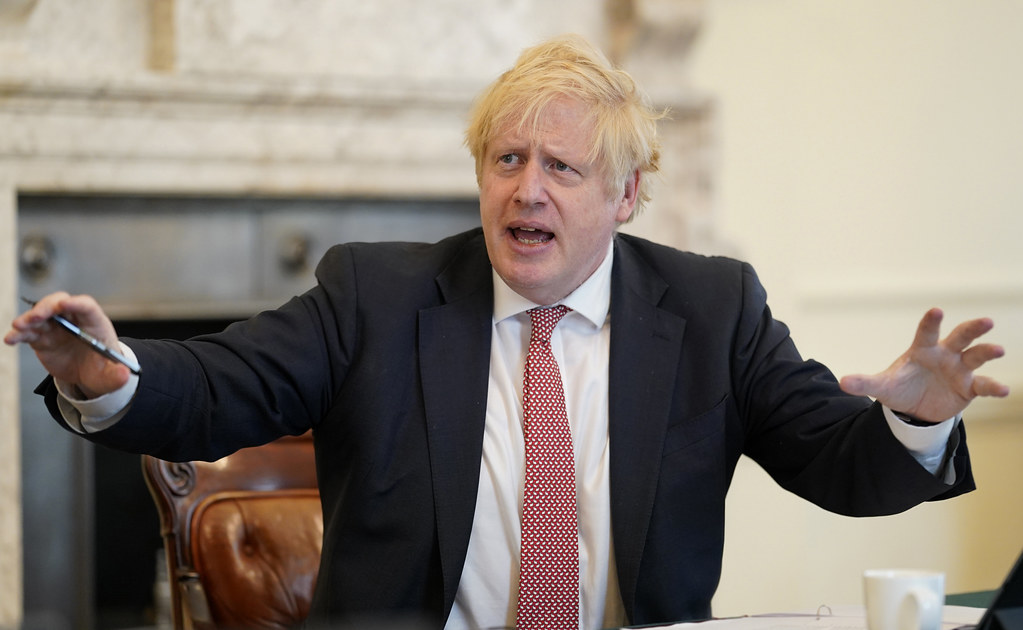23 April 2022 | OPINION
If the Conservatives perform poorly in the upcoming council elections, it may prove that Boris Johnson’s premiership is untenable.
Partygate and other scandals have greatly damaged both the Prime Minister’s popularity and his reputation; they have also damaged the brand of the Conservative Party. Despite his seemingly infinite luck in being able to maintain his position amidst heavy criticism and greatly negative coverage in the national press, Johnson’s leadership is increasingly becoming destabilised whilst certain Cabinet colleagues appear to be making moves to increase their personal popularity and potential succession.
What is clear is that the Prime Minister will not give way in his position despite calls for him to resign over almost every issue which has resulted in a PR disaster for his party. A cynic might say that his ego is too large and his lust for power is too great – others might support his message in arguing that he still has ‘work to do’, as Tony Blair told Gordon Brown by the time of New Labour’s third General Election.
The only way Johnson will go now is if he is forced out by his backbenchers. It is certainly unlikely, at least for the time being, that he would be challenged by a rival heavyweight in the Cabinet. Once a favourite to succeed him, Chancellor Rishi Sunak’s reputation has been damaged greatly by his wife’s non-domicile tax status row, followed by his joint shame with Johnson in receiving a fixed penalty fine from the Metropolitan Police after the pair were found to have breached Covid laws during lockdown. This has worked incredibly in the favour of Liz Truss, who suspiciously seems to be on manoeuvers and portraying herself as a statesman – a future Tory party leader – whilst conveniently keeping clear of the criticism aimed at her boss.
Only months ago, Johnson came close to being faced with an internal vote of no confidence in his leadership over Partygate – however, the number of letters to the 1922 Committee required to invoke such a vote was not substantial enough. Since then, some letters of no confidence have been withdrawn, such as that of leader of the Scottish Tories, MP and MSP, Douglas Ross. Retrospective speculation may be of little value, but I’d wager he would have just about won a vote considering his extraordinary ways of being able to shake off any and all criticism, whether from Opposition parties or backbenchers of his own.
This week, however, the House of Commons passed a notion tabled by the Labour Party to refer the Prime Minister to the Commons Privileges Committee for an investigation into whether he did, in fact – despite his repeated denial to the allegation – deliberately mislead Parliament by stating that no Covid laws were broken after the Partygate scandal initially broke. For this motion to have passed, a majority of Ayes to the notion must be heard by the Speaker; remarkably, it was waved through by the Speaker without a recorded vote due to a lack of Noes – if there were any – from the Conservative benches.
This could be significant for Boris Johnson. The Ministerial Code dictates that lying to Parliament – an allegation he is faced with frequently – is an offence worth a resignation, but it is evident that some members of this Government have little regard for the rulebook. Priti Patel did not resign as Home Secretary when she was accused of bullying and found to have broken the Code. It is just as unlikely that Johnson will resign if he is found, pending an investigation by the Committee, to have also broken the Ministerial rulebook.
I argued recently that “it would be unsurprising if Partygate plays a role in the downfall of Johnson’s premiership, or indeed this Conservative Government, whether now or at any point up until the result of the next election”. This is increasingly probable, even if his downfall will be ultimately attributed to a backbench insurrection.
It is most significant that the Prime Minister has lost the confidence of heavyweights Mark Harper, Chair of the Covid Recovery Group, and Steve Baker, who was instrumental in the collapse of Theresa May’s leadership. If a vote of no confidence were invoked by the Tory backbenches, it would likely not happen without the instruction or consent of such influential figures within the junior ranks. In fact, a Tory revolt against Johnson’s leadership seems highly unlikely without advocacy from the likes of Harper or Baker.
The upcoming May elections will almost certainly determine how long Johnson has left in Government. An increasingly disgruntled party, faced with the possibility of losing hundreds of council seats up and down the country, would surely prove fatal to the stability of his leadership. It is significant in itself that the Commons waved through Labour’s notion for a Parliamentary Committee-led investigation into alleged deliberate misleading of the House – not least that its findings could invoke the beginning of the end in Johnson’s premiership, in addition to whatever the conclusions are of the enquiries being made by the Metropolitan Police and Sue Gray.
Last May, Sir Keir Starmer received a devasting thumping from the electorate as the Conservatives made huge council gains. This May, the tables could turn – and if they do, they will likely turn on Boris Johnson’s popularity with both voters and his party. The rest is politics.



























I fully agree with your well worded article.
Keep up your well researched articles.
You deserve to do well.